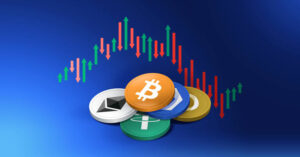
The United Nations Office on Drugs and Crime (UNODC) has raised alarms over the increasing use of cryptocurrency to facilitate organized crime across Southeast Asia. The agency is urging regional governments to enhance monitoring and provide better training for law enforcement to address the rise in crypto-enabled illicit activities such as money laundering and fraud.
The Role of Cryptocurrency in Southeast Asia’s Criminal Economy
The UNODC’s latest report highlights how Southeast Asia’s underground financial networks—especially unregulated casinos, junkets, and illegal online gambling operations—are increasingly turning to cryptocurrency. This shift has made it easier for criminal groups to engage in cross-border illicit activities, leveraging the speed and anonymity of digital currencies.
UNODC Warns of Rising Crypto Misuse
The report emphasizes the growing concerns over high-risk Virtual Asset Service Providers (VASPs), which have become a new tool for criminal enterprises to evade detection. With the ability to transfer large sums of money quickly across borders, cryptocurrency has become a preferred method for organized crime.
Masood Karimipour, UNODC’s Regional Representative for Southeast Asia and the Pacific, stated, “Criminal networks are using advanced technologies to perpetrate larger, more sophisticated schemes involving fraud, money laundering, underground banking, and online scams. This has created a ‘criminal service economy’ in Southeast Asia, making the region a hub for transnational crime.”
Tether (USDT) Faces Scrutiny
The report points to Tether (USDT), particularly on the TRON blockchain, as a favored currency for transnational criminal groups in the region. These groups use Tether to move stolen funds across borders with ease. Although stablecoins like Tether have legitimate uses, UNODC’s analysis shows that many Tether transactions are linked to high-risk activities, including online gambling and cyber fraud.
Some transactions involving Tether have also been associated with sanctioned entities, including North Korea’s notorious Lazarus Group, which is involved in global hacking and cybercrime activities.
Urgent Need for Enhanced Regulation
In response to the rising threat, the UNODC is calling for better monitoring of illicit activities within casinos and online fraud operations. The agency also recommends that law enforcement officers receive more specialized training to detect and stop money laundering schemes that involve cryptocurrency.
Furthermore, the report stresses the importance of regional cooperation in Southeast Asia to tighten regulatory oversight and prevent the area from becoming a global hub for crypto-related crime.
Crypto’s Role in Crime: Less Than Perceived
Despite the concerns raised about cryptocurrency being used for illicit purposes, data suggests that its role in crime may be overstated. A report from Homeland Security Investigations (HSI) found that regulated crypto platforms are helping law enforcement agencies track and prevent illegal activities thanks to the transparency of blockchain technology.
According to Merkle Science, only a small fraction of USDT transactions—about 0.61%—from 2021 to 2024 were flagged as potentially illicit. Additionally, Chainalysis found that just 0.34% of on-chain transactions in 2023 were tied to criminal activities. This indicates that traditional financial systems, particularly cash, remain the dominant means for facilitating crime, with crypto playing a smaller, though growing, role.
Balancing Innovation and Regulation
As cryptocurrencies continue to grow in both legitimate and illicit uses, finding the right balance between regulation and innovation is critical. While crypto can aid in criminal activity, it also provides tools for authorities to track and prevent illicit actions. The UNODC’s call for tighter regulations is necessary to tackle these emerging threats, but it’s equally important to recognize the potential for crypto to be a valuable asset in law enforcement’s efforts to combat crime.






